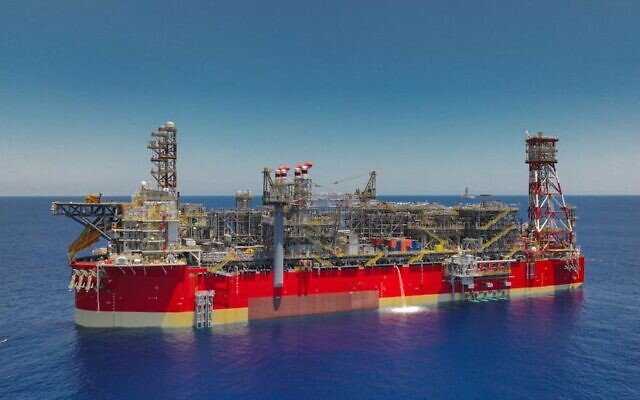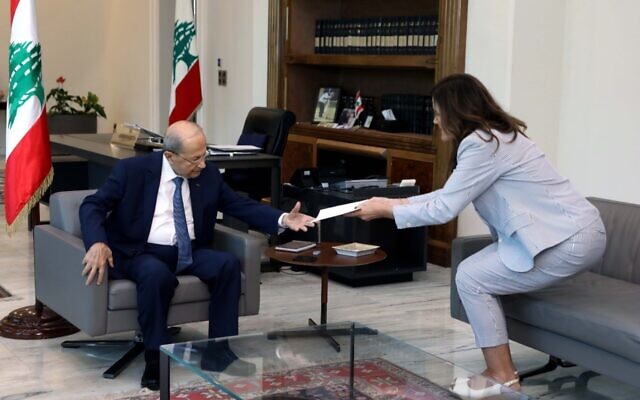In a change of tone Saturday, Hezbollah leader Hassan Nasrallah lauded a US-mediated draft proposal to resolve a maritime border dispute between Israel and Lebanon as “a very important step.”
In a televised speech, Nasrallah, who has repeatedly threatened to attack Israel if it begins drilling in the disputed Karish Gas Field, appeared far more conciliatory, saying that the emerging deal opens up “new and promising horizons for the people of Lebanon by rescuing the country from the crisis it has fallen into.”
He said the coming days were “crucial” and that he hoped negotiations would bear fruit.
“Only Lebanon will make the decision to demarcate its maritime boundaries, and it will do this according to what Lebanon sees as good for the state,” he said.
Additionally, the Hezbollah terror group’s leader emphasized that the progress toward resolving the dispute was a result of Lebanon’s “strength,” as opposed to the “generosity” of the United States and Israel.
Earlier on Saturday, Lebanon’s President Michael Aoun met with US ambassador to Lebanon Dorothy Shea and received the written proposal from US mediator Amos Hochstein for the demarcation of the maritime border with Israel. The dispute relates to some 860 square kilometers (330 square miles) of the Mediterranean Sea that include lucrative offshore gas fields.
Several Hebrew media outlets reported that Israel had also received the proposal from the US. The reports said the cabinet will meet next week to approve the agreement.
Nasrallah said last week that his Iran-backed terror organization’s missiles were “locked on” Karish, and in July, the group launched four unarmed drones toward the gas field.
According to Channel 12, under the emerging deal the location of the proposed border will be a compromise between the two sides. The report said that Lebanon will be able to drill for gas five kilometers north of Israel’s Karish gas rig.
An unnamed security official told the network that Israel’s security interests are guaranteed by the draft proposal.

Energean’s floating production system (FPSO) at the Karish gas field in the Mediterranean Sea. (Energean)
The US-brokered talks on rights to the area, the subject of long-running indirect negotiations between Jerusalem and Beirut and repeated threats from the Hezbollah, had appeared to make progress in recent weeks.
Kan news aired a survey Saturday, in which 46% of respondents supported the current interim government deciding on the deal, with only 16% against it doing so. The rest said they were unsure or did not have enough knowledge on the topic.

Lebanese President Michel Aoun (L) receives a proposal from US ambassador to Lebanon Dorothy Shea to resolve a maritime border dispute with Israel, October 1, 2022 (Lebanese Presidency)
Earlier this month, Lapid’s office vowed Israel would go ahead and extract gas from Karish with or without a deal on the maritime border with Lebanon. Those comments came hours after Aoun said that indirect talks with Israel to end a maritime border dispute were in their “final stages.”
A spokesperson for Lapid issued a statement later that day saying: “Israel believes that it is both possible and necessary to reach an agreement on a maritime line between Lebanon and Israel, in a manner that will serve the interests of the citizens of both countries.”
For more than two years, Lebanon has been facing a crippling economic, political and energy crisis that has left citizens without basic necessities and created a vacuum for the Hezbollah terror group to take further hold in the nation. Lebanon sees the economic benefits of gas exploration as potentially key to helping it emerge from the crisis.
